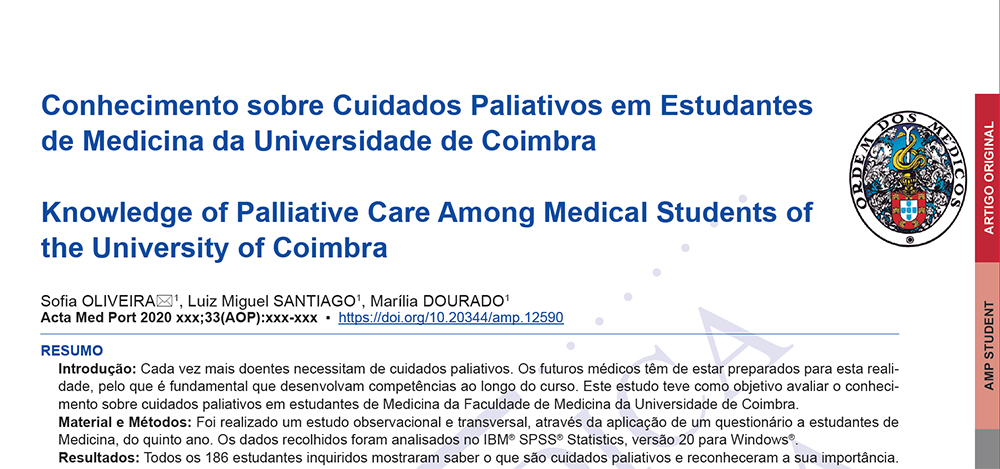SOCIAL MEDIA
Portuguese Medical Association's Scientific Journal

Introduction: The need for palliative care is increasing. Future doctors must be prepared for this, so it is essential to develop skills during their undergraduate studies. The aim of this study was to evaluate the knowledge of medical students at the Faculty of Medicine of the University of Coimbra regarding palliative care.
Material and Methods: An observational and cross-sectional study was performed through the application of a questionnaire answered by fifth year medical students. The collected data were analyzed using IBM® SPSS® Statistics, version 20 for Windows®.
Results: All 186 students surveyed were aware of what palliative care is and recognized its importance. From the total, 52.7% of students reported they knew what an informal caregiver is and 96.8% disagreed that palliative care is only provided at the end of life; 88.2% have never had any training on how to deal with palliative care patients. Only 57.5% of students reported that they had been trained to communicate ‘bad news’, but 70.4% assumed that they were not able to communicate such bad news. On the other hand, 89.8% reported their inability to take care of palliative patients and 98.4% admitted that they needed more training in this area.
Discussion: With the increasing number of patients who require palliative care, there is the need to investigate whether medical students are being adequately prepared to care for these patients and assess their knowledge level in this context.
Conclusion: Fifth-year medical students know what palliative care is and consider it important. However, they do not feel adequately trained and ready to take care of patients who need palliative care. It is essential to reflect on how physicians should be trained and to reconsider the medical syllabus, given the present lack of undergraduate medical training in palliative care.